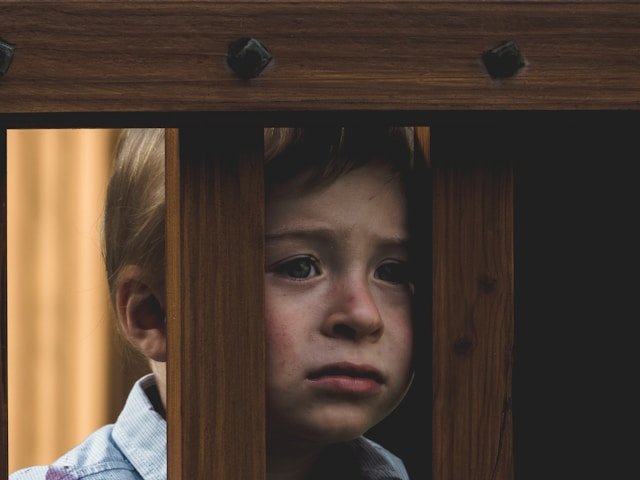Depression in Kids: Understanding Symptoms, Causes, and Solutions

Depression is a mental health condition that can affect anyone, including children. While sadness and emotional ups and downs are a normal part of childhood, persistent feelings of hopelessness, irritability, and disinterest in daily activities could indicate depression. Addressing depression in kids early can significantly impact their emotional well-being and long-term development.
In this comprehensive article, we’ll explore the history of mental health awareness in children, identify symptoms, discuss causes, and outline actionable solutions for managing depression in kids.
A Brief History of Depression in Kids
For much of history, the idea that children could experience depression was dismissed. Childhood was often romanticized as a carefree time, making it difficult to acknowledge that kids could suffer from mental health issues.
In the mid-20th century, psychologists began studying emotional disorders in children. Dr. John Bowlby’s work on attachment theory in the 1950s revealed how early life experiences affect mental health. By the 1980s, research showed that depression could present differently in kids than adults, often manifesting as irritability or behavioral issues rather than sadness.
Today, awareness of depression in kids has grown, but stigma and misconceptions remain barriers to seeking help. Early intervention, backed by research and advocacy, continues to be crucial in improving outcomes for affected children.
Recognizing Depression in Kids
Depression in kids can be challenging to identify because children may struggle to articulate their emotions. Here are the most common symptoms of depression in kids:
1. Persistent Sadness
- Prolonged periods of sadness, crying, or feelings of hopelessness.
- Unlike occasional sadness, these emotions last for weeks or months.
2. Irritability or Anger
- Kids with depression often display heightened irritability or frequent temper outbursts.
- This symptom is particularly common in younger children.
3. Withdrawal from Activities
- A noticeable loss of interest in hobbies, play, or social interactions.
- Children may avoid friends or family and prefer isolation.
4. Changes in Appetite
- Depression can cause overeating or a loss of appetite.
- Weight gain or loss may accompany these changes.
5. Sleep Disturbances
- Insomnia or excessive sleeping is common in kids with depression.
- Nightmares or difficulty staying asleep may also occur.
6. Fatigue and Low Energy
- Children may complain of feeling tired or lack the energy to engage in activities.
7. Difficulty Concentrating
- Trouble focusing, forgetfulness, or a drop in academic performance can be red flags.
8. Physical Complaints
- Recurring headaches, stomachaches, or other unexplained physical symptoms.
- These often have no identifiable medical cause.
9. Feelings of Worthlessness or Guilt
- Kids may express thoughts like “I’m not good enough” or blame themselves unnecessarily.
10. Thoughts of Death or Suicide
- Although rare, some children may express a desire to harm themselves or talk about death.
- This is a serious symptom requiring immediate attention.
What Causes Depression in Kids?
The causes of depression in kids are multifaceted, involving genetic, environmental, and psychological factors.
1. Genetic Predisposition
- A family history of depression or other mental health disorders increases the risk.
- Genes linked to mood regulation may play a role.
2. Environmental Stressors
- Exposure to traumatic events, such as divorce, abuse, or the death of a loved one.
- Bullying, both in-person and online, is a significant contributor.
3. Brain Chemistry
- Imbalances in neurotransmitters like serotonin and dopamine can affect mood.
4. Chronic Illness or Pain
- Children dealing with long-term physical illnesses are more prone to depression.
5. Academic and Social Pressures
- Struggles in school or difficulty making friends can impact mental health.
- High expectations from parents or teachers can also contribute.
How Depression in Kids Differs from Adults
While adults with depression often feel sadness or hopelessness, depression in kids may present differently:
- Irritability: Instead of sadness, kids may appear angry or frustrated.
- Behavioural Changes: Aggressiveness, defiance, or acting out at home or school.
- Play and Fantasy: Depressed children might express their feelings through dark or troubling themes in their play or drawings.
Understanding these differences is crucial for recognizing depression early and seeking appropriate treatment.
Diagnosing Depression in Kids
Diagnosing depression in kids requires a thorough evaluation by a healthcare professional.
1. Clinical Interviews
- Mental health professionals interview the child and caregivers to understand symptoms and behaviours.
2. Questionnaires and Tests
- Tools like the Children’s Depression Inventory (CDI) can help gauge symptom severity.
3. Input from Teachers and Peers
- Observations from those who interact with the child regularly, such as teachers, can provide valuable insights.
4. Ruling Out Medical Causes
- Doctors may perform tests to rule out physical conditions, such as thyroid issues, that can mimic depression.
The Impact of Untreated Depression on Kids
If left untreated, depression in kids can lead to:
- Academic struggles and dropping grades.
- Difficulty forming and maintaining friendships.
- Increased risk of substance abuse in adolescence.
- Development of long-term mental health conditions, such as anxiety or chronic depression.
How to Help Kids with Depression
Parents, teachers, and caregivers play a pivotal role in supporting kids with depression.
1. Foster Open Communication
- Create a safe, non-judgmental space for your child to express their feelings.
- Actively listen and validate their emotions without dismissing them.
2. Seek Professional Help
- Therapy, such as cognitive-behavioral therapy (CBT), is effective for managing depression.
- In severe cases, medication like antidepressants may be prescribed under a doctor’s supervision.
3. Promote a Healthy Lifestyle
- Encourage regular physical activity, such as playing outside or sports.
- Ensure your child gets enough sleep and eats a balanced diet.
4. Limit Screen Time
- Excessive screen time, especially on social media, can exacerbate depression in kids.
5. Build a Supportive Environment
- Strengthen your child’s support network with friends, family, and mentors.
- Foster positive experiences, such as hobbies or extracurricular activities.
Schools and Depression in Kids
Schools can play a critical role in identifying and addressing depression in kids:
- Counselling Services: Providing access to school counsellors helps kids receive timely support.
- Teacher Training: Educating teachers to recognize symptoms of depression in kids can lead to early intervention.
- Peer Programs: Peer support groups foster a sense of belonging and reduce feelings of isolation.
When to Seek Emergency Help
Immediate intervention is necessary if a child:
- Expresses thoughts of self-harm or suicide.
- Exhibits aggressive behaviour that endangers themselves or others.
- Experiences a sudden and severe decline in functioning.
Breaking the Stigma Around Depression in Kids
One of the most significant barriers to addressing depression in kids is stigma. Parents may fear judgment or worry about labelling their children. To combat this:
- Educate yourself and others about mental health.
- Normalize conversations about emotions and struggles.
- Advocate for accessible mental health resources in schools and communities.
Innovative Approaches to Managing Depression in Kids
Emerging treatments and technologies are transforming how we address depression:
- Digital Therapy Apps: Child-friendly mental health apps provide tools for managing emotions.
- Mindfulness Practices: Techniques like meditation and yoga are becoming part of school programs.
- Family Therapy: Involving the whole family in therapy helps address environmental stressors.
Depression in kids is a serious yet manageable condition. By understanding its symptoms, causes, and treatment options, parents and caregivers can play an active role in their child’s recovery. Early intervention, open communication, and professional support are critical to helping kids overcome depression and lead fulfilling lives.
Raising awareness about depression in kids ensures that no child suffers in silence. Share this guide to help others recognize and address this important issue.















